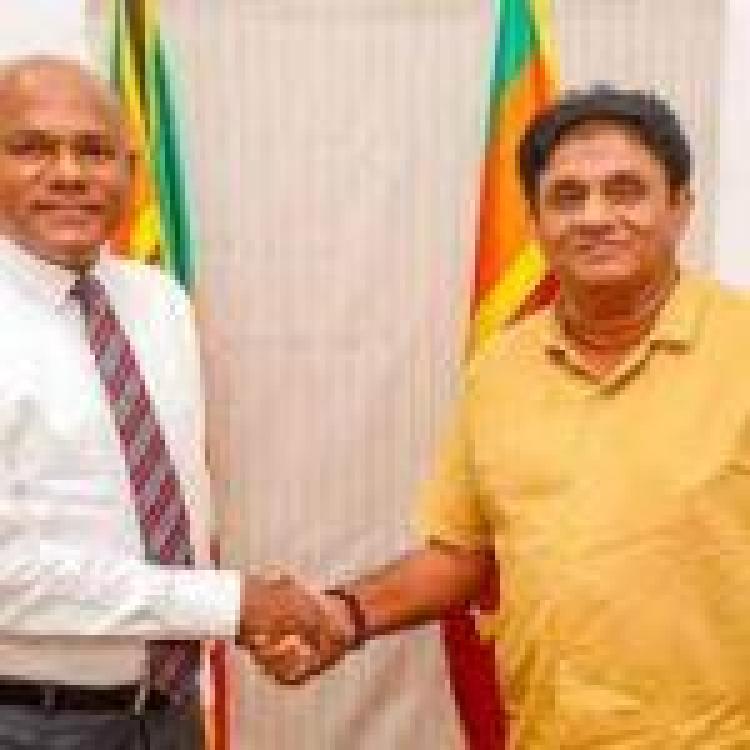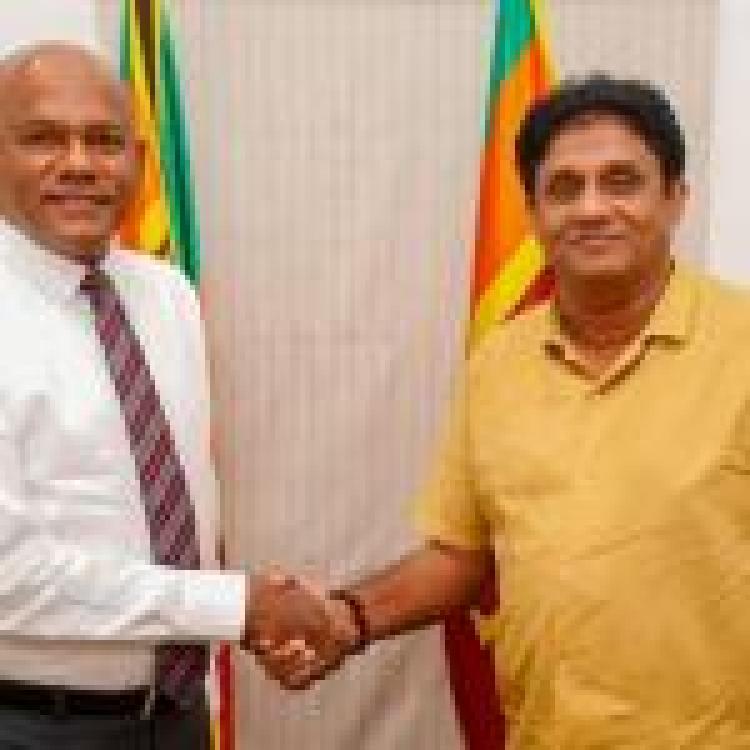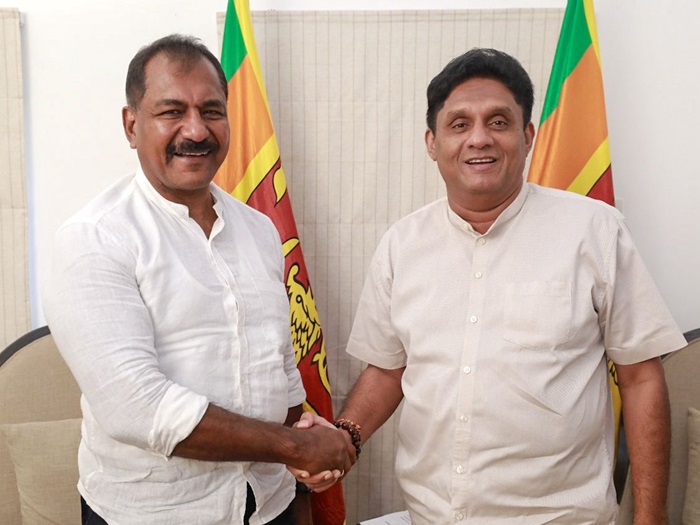
Sri Lanka’s opposition Samagi Jana Balawegaya (SJB) welcomed more senior military figures, including those accused of overseeing the slaughter of tens of thousands of Tamils, to the party as it looked to expand its Sinhala nationalist support ahead of elections touted for later this year.
Last week, the former Chief of Defence Staff Major General Sathyapriya Liyanage, was appointed as the head of the SJB’s Anti-corruption Unit. He had obtained the party membership and appointment letter from the Leader of the Opposition Sajith Premadasa.
Liyanage stands accused of overseeing the Mullivaikkal genocide a decade ago, as head of the army’s Task Force 3, during the Sri Lanka military’s 2009 offensive. Tens of thousands of Tamils where killed as the military shelled hospitals, deployed rape and sexual violence, and executed those who attempted to surrender.
The Army website confirms that he commanded “Task Force - 3 during the Humanitarian Operations until the successful termination of the operations against the terrorists after the battles reached their peak”. Task Force 3 was “particularly involved in the final weeks of the conflict” said the OHCHR investigation on Sri Lanka, a United Nations-mandated investigation into the concluding phase of the armed conflict. The unit was also informed of the coordinates of the Vallipunam Hospital, which was directly hit by artillery fire in those final weeks.
See more from the OISL here.
He was later appointed the Overall Operational Command in Colombo in the wake of the Easter Sunday attacks.
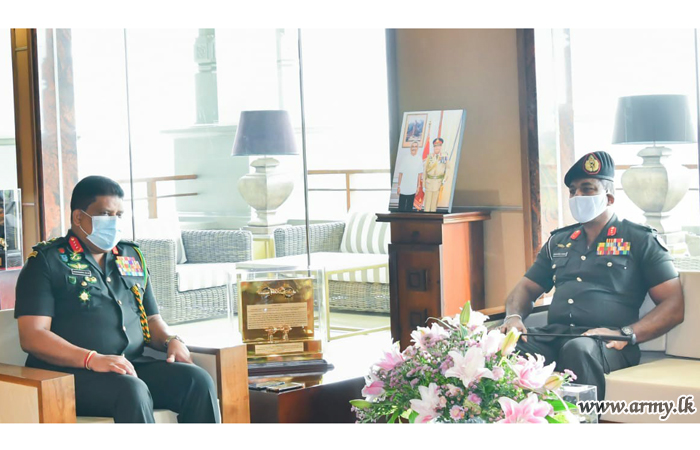
Another individual to join the fold is Retired Lieutenant Colonel Rathnapriya Bandu, who also received his membership from Premadasa. Ironically Bandu has been appointed as the head of SJB’s committee for national unity, peace and harmony at home and abroad.
Bandu was a Squadron Commander with Sri Lanka’s Special Forces, before going on to become the Joint Commanding Officer of the Civil Security Department for Jaffna, Kilinochchi and Mullaitivu.
The CSD originates from the National Home Guard Service which was effectively a voluntary paramilitary organisation run by the Sri Lankan government in border villages to the North-East where locals were recruited to provide intelligence on Tamil armed resistance movements.
A report published by Adayaalam Centre for Policy and Research (ACPR) in 2017 noted the impact of continued militarisation from activities conducted by the CSD in Vanni.
ACPR noted that the CSD has “aggressively targeted” former LTTE cadres and war-affected women in the Vanni to join its ranks, and has become one of the largest providers of employment in the region, employing over 3000 individual in Mullaitivu and Kilinochchi alone. The CSD runs agricultural projects and employs pre-school teachers as part of its activities.
As a result, not only has this led to the creation of economic dependency on the military, but the CSD has also suppressed civic activism and led to a destruction of community identity, as well as the further marginalization of women who face a greater risk of gender-based violence and also a diminished ability to seek redress when it occurs.
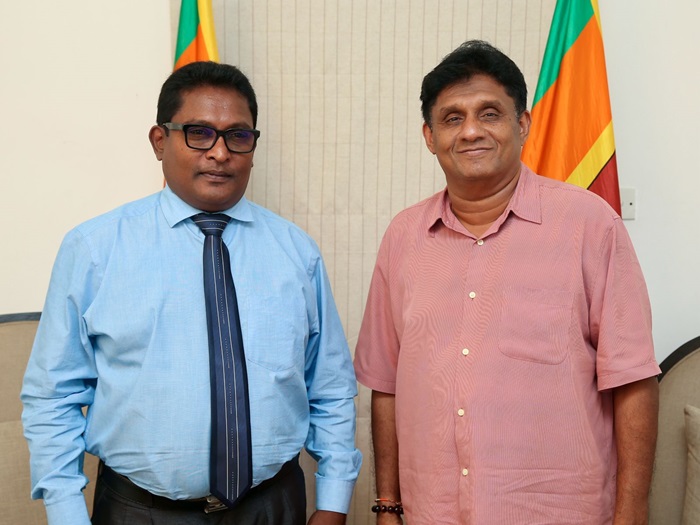
The recent joining of the SJB represents a change of heart for Bandu. Upon retiring from the military, Bandu made his entry to politics and contested under the Sri Lanka Podujana Peramuna (SLPP) ticket in the Vanni District.
When asked why Tamils and Muslims had voted for Sajith Premadasa, Bandu told the Sunday Observer “They have now realised their mistake and know that President Gotabaya Rajapaksa will continue in his position for the next ten years and this Government will continue for the next twenty years”.
“So far the Rajapaksa government and military personnel have only done good deeds to the people of the North,” he claimed.
Speaking on reports of mass atrocities, Bandu said “if there were war crimes, the criminals will be tried according to the country’s law”.
“We engaged in a humanitarian operation.”
When asked about the 1984 Black July pogrom in which thousands of Tamils were killed, Bandu said “I don’t accept that it was a mass murder”.
“Certain politicians had vested interests. The Sinhalese, Tamils and Muslims never asked for war. They wanted to live in harmony. But they faced the brunt of cheap foreign agendas. So in future, under a SLPP Government we are looking at ironing out the misunderstandings between communities.”
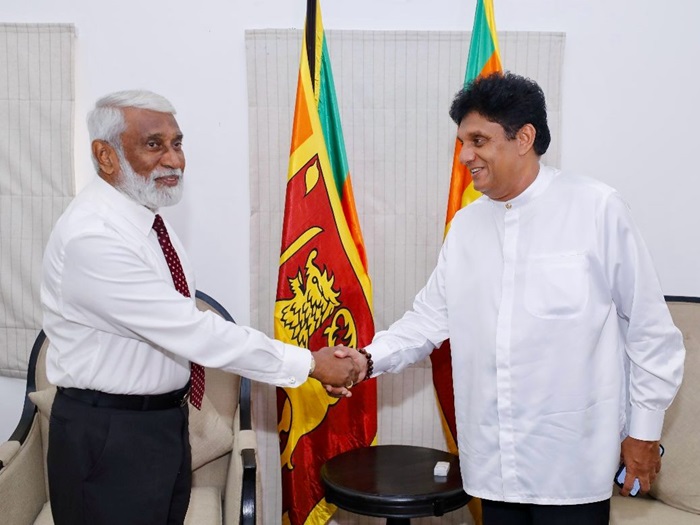
Before receiving these two individuals Premadasa also welcomed Daya Sandagiri, the 14th Naval Commander of Sri Lanka to the party.
Sadagiri also has a chequered history. In 2006, then-president Mahinda Rajapaksa told The Sunday Times that he would appoint a Presidential Commission of Inquiry (PCoI) to probe military procurement deals entered into by Sadigiri, who had stepped down as Commander of the Navy and at the time was Chief of Defence Staff. Sadgiri reportedly entered into a deal with an Israeli firm to procure 20-year-old guns for the Navy's Fast Attack Craft (FAC) claiming that they were "brand new”. He reportedly made an advance payment in the millions for weapons that were not in production. In a separate deal, a Colombo firm was awarded a US $30 million contract (over Rs 3 billion), without calling for tenders, for the manufacture of ten Fast Attack Craft. The other two charges include Rs 21.8 million to renovate the Navy House at Bullers Road, Bambalapitiya, which at the time Sandagiri lived in.
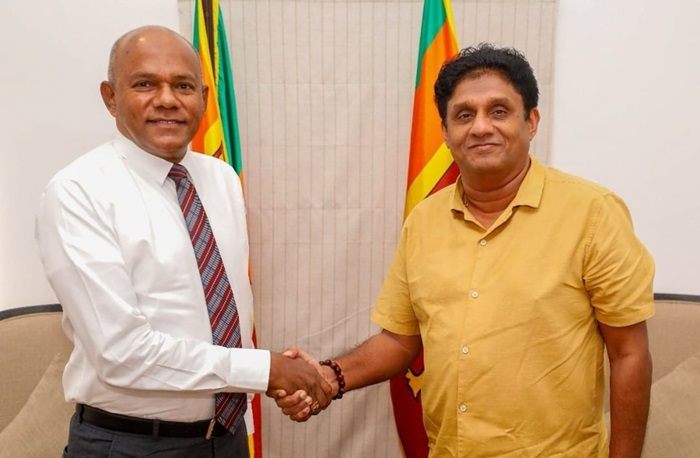
Premadasa also welcomed former Army Commander Daya Ratnayake to the SJB, another official who oversaw military operations during the Tamil genocide and who has repeatedly denied war crimes have taken place. The SJB had shared a photograph of the Leader of the Opposition Sajith Premadasa welcoming him, adding that “General Daya Ratnayake, the 20th Commander of the Sri Lanka Army, who played a pivotal role in leading the three-decade-long humanitarian operation against the brutal LTTE, joined the Samagi Jana Balawegaya today.”
In 2019, Ratnayake held a media briefing where he denied the military committed war crimes and slammed the government for reportedly arresting soldiers every time the issue is taken up at the United Nations Human Rights Council in Geneva.
“Whenever there is a UNHRC event coming up, incidents of arresting and punishing military personnel come up out of nowhere,” claimed former army commander Daya Ratnayake. “When such incidents occur, the image of entire tri-forces is damaged. That’s why we request the President to look at this sensitive issue.”

